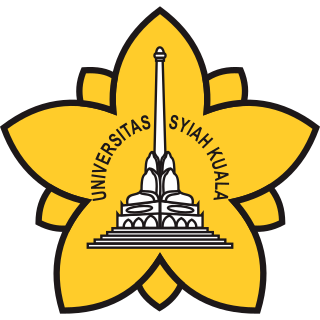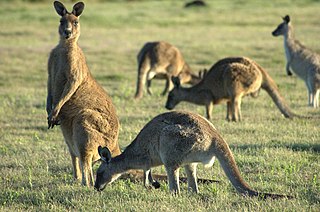
Biological anthropology, also known as physical anthropology, is a scientific discipline concerned with the biological and behavioral aspects of human beings, their extinct hominin ancestors, and related non-human primates, particularly from an evolutionary perspective. This subfield of anthropology systematically studies human beings from a biological perspective.

Social science is one of the branches of science, devoted to the study of societies and the relationships among individuals within those societies. The term was formerly used to refer to the field of sociology, the original "science of society", established in the 18th century. In addition to sociology, it now encompasses a wide array of academic disciplines, including anthropology, archaeology, economics, human geography, linguistics, management science, communication science, and political science.

Human ecology is an interdisciplinary and transdisciplinary study of the relationship between humans and their natural, social, and built environments. The philosophy and study of human ecology has a diffuse history with advancements in ecology, geography, sociology, psychology, anthropology, zoology, epidemiology, public health, and home economics, among others.
Evolutionary economics is a school of economic thought that is inspired by evolutionary biology. Although not defined by a strict set of principles and uniting various approaches, it treats economic development as a process rather than an equilibrium and emphasizes change, innovation, complex interdependencies, self-evolving systems, and limited rationality as the drivers of economic evolution. The support for the evolutionary approach to economics in recent decades seems to have initially emerged as a criticism of the mainstream neoclassical economics, but by the beginning of the 21st century it had become part of the economic mainstream itself.

The following outline is provided as an overview of and topical guide to academic disciplines:
Human biology is an interdisciplinary area of academic study that examines humans through the influences and interplay of many diverse fields such as genetics, evolution, physiology, anatomy, epidemiology, anthropology, ecology, nutrition, population genetics, and sociocultural influences. It is closely related to the biomedical sciences, biological anthropology and other biological fields tying in various aspects of human functionality. It wasn't until the 20th century when biogerontologist, Raymond Pearl, founder of the journal Human Biology, phrased the term "human biology" in a way to describe a separate subsection apart from biology.
The College of Agricultural and Environmental Sciences (Ag&E) is one of four colleges of the University of California, Davis. Established in 1922, it offers degrees in 27 undergraduate majors and thirty-three graduate groups. As of January 2014, the College has been overseen by Dean Helene Dillard.
The Human Behavior and Evolution Society (HBES) is an interdisciplinary, international society of researchers, primarily from the social and biological sciences, who use modern evolutionary theory to help to discover human nature — including evolved emotional, cognitive and sexual adaptations. It was founded on October 29, 1988 at the University of Michigan.
Cultural selection theory is the study of cultural change modelled on theories of evolutionary biology. Cultural selection theory has so far never been a separate discipline. However it has been proposed that human culture exhibits key Darwinian evolutionary properties, and "the structure of a science of cultural evolution should share fundamental features with the structure of the science of biological evolution". In addition to Darwin's work the term historically covers a diverse range of theories from both the sciences and the humanities including those of Lamark, politics and economics e.g. Bagehot, anthropology e.g. Edward B. Tylor, literature e.g. Ferdinand Brunetière, evolutionary ethics e.g. Leslie Stephen, sociology e.g. Albert Keller, anthropology e.g. Bronislaw Malinowski, Biosciences e.g. Alex Mesoudi, geography e.g. Richard Ormrod, sociobiology and biodiversity e.g. E.O. Wilson, computer programming e.g. Richard Brodie, and other fields e.g. Neoevolutionism, and Evolutionary archaeology.
Charles A. S. Hall is an American systems ecologist and ESF Foundation Distinguished Professor at State University of New York in the College of Environmental Science & Forestry.

Syiah Kuala University, abbreviated as USK, founded on 2 September 1961, is the largest and the oldest national university in Banda Aceh, Indonesia. The name of the university is taken from the prominent theologian, Tengku Abdur Rauf As Singkili, who lived in the 16th century.
The NAS Award for Scientific Reviewing is awarded by the U.S. National Academy of Sciences (NAS) "to recognize authors whose reviews have synthesized extensive and difficult material, rendering a significant service to science and influencing the course of scientific thought." It has been awarded annually in specific fields since 1979.
The following outline is provided as an overview of and topical guide to social science:

Aliko Dangote University of Science and Technology (ADUSTECH) is located along Gaya/Dutse Road, Wudil LGA of Kano state. The university commenced academic activities in the year 2001 and a member of the Association of Commonwealth Universities.

Welfare biology is a proposed cross-disciplinary field of research to study the positive and negative well-being of sentient individuals in relation to their environment. Yew-Kwang Ng first advanced the field in 1995. Since then, its establishment has been advocated for by a number of writers, including philosophers, who have argued for the importance of creating the research field, particularly in relation to wild animal suffering. Some researchers have put forward examples of existing research that welfare biology could draw upon and suggested specific applications for the research's findings.

Arthur Jarvis University (AJU) is a private university in Akpabuyo, Calabar, Cross River State in Nigeria.







